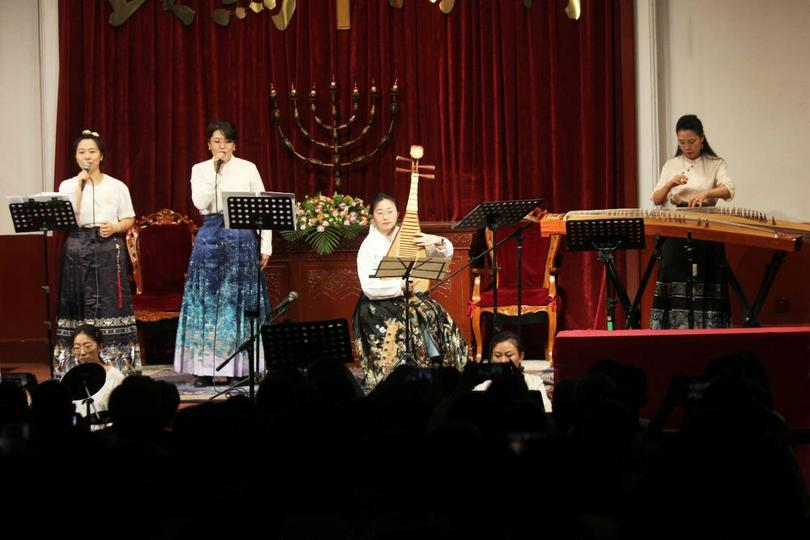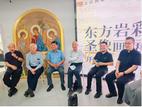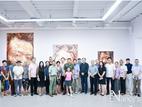During this year's National Day and Mid-Autumn Festival, China's unique "holiday adjustment" system created an eight-day break, allowing people to travel or reunite with family.
Many churches took the opportunity to organize activities, reaching out to seekers and deepening the bonds among believers. When asked several Christians about their holiday plans and reflections, the themes of rest and relationships emerged most vividly.
Elena Liu, who has a seven-month-old baby, lives with her mother-in-law, who helps care for the child. Their family follows a clear daily rhythm—Elena and her husband work on schedule while the grandmother takes the baby outdoors twice a day. Around 4 or 5 p.m., groups of grandparents and babies fill the community square, a familiar sight of neighborhood life.
The National Day holiday brought a pause to this routine. The community parking lot was largely empty, and the usual groups of grandparents and babies had vanished as many families traveled or returned home.
The break offered Elena a rare chance to step away from the ordinary order of life—to pause, adjust, and reestablish balance. One holiday day, she and her husband visited an art exhibition. Concepts like architecture, imagery, nature, ecology, time, technology, and memory drifted through her mind. It was a momentary departure from routine—a quiet, refreshing release.
Some people use holidays to recover; others, to explore.
Riley Li, who moved to Nanjing earlier this year, found the long break an ideal opportunity to get to know her new city. She spent the holiday visiting the Xinanli lantern exhibition, shopping around Xinjiekou, cycling around a lake near her home, and attending Sunday service at the historic St. Paul's Church—experiencing the rhythm and pulse of her new surroundings.
Designer Arden Huang spent the first five days of his holiday traveling with colleagues to Yangshuo, Guangxi. Their goal was not sightseeing, but to avoid crowds and unwind in lesser-known spots. Things didn't go as planned, yet unexpected turns brought their own grace.
"Later we realized," he said, "even when we couldn't catch the sunrise, riding our little scooters and watching the sunset together was just as beautiful." Reflecting on the trip, he added, "Our own choices and perspectives are limited, but when we surrender our plans to God, He shows us new possibilities. We no longer see only obstacles or difficulties, but new directions and opportunities for growth.
Visiting family was another common holiday theme.
Jenny Sun learned before the break that her mother had fractured her foot and her father had been injured as well. Concerned, she decided early on to spend the holiday at home. Jenny invited Tina Liu, her close friend and colleague, also a Christian, to her hometown in Northeast China. Together, they also visited the vast grasslands of Inner Mongolia. The generous portions of local dishes left a strong impression on Tina.
What surprised both Jenny and Tina most was her family's reaction. "They were amazed that I brought a colleague home, thinking people in the world can't be so close to co-workers. But for us, it feels completely natural," Jenny said. Few of her family members share her faith. "My life is my testimony," she added.
How to bear witness to the gospel among family and friends without faith is a question many Christians wrestle with. Lucas Sun reflected deeply on this during the break. He attended a relative's wedding and a friend's grandfather's funeral, meeting many acquaintances and neighbors. Yet instead of joy, he felt exhaustion and emptiness.
"People talked about money over and over again—comparing, competing," he said. "But we can't just withdraw from them, because it's precisely these people to whom we're called to bring the gospel. We need to understand them and let them understand our faith. I saw how trapped many are by worry and greed. If you don't talk about money, there's almost nothing left to say."
Arden's reflection perhaps echoed Lucas's in another way. "Traveling isn't about where you go," he said. "It's about the joy of harmony with those around you. Reunion isn't about physical closeness—when hearts are together, we're never alone."
Besides traveling and visiting family, many believers spent their holidays participating in church activities.
After some family outings, Mark Luo returned to Shanghai before the holiday ended and celebrated the Mid-Autumn Festival with his church community. Each member brought a dish to share, and they gathered in a circle for fellowship
"Although we call one another brothers and sisters in Christ," Mark observed, "many Chinese Christians still live quite secularly, shaped by Confucian and postmodern influences. Once people start families, they tend to live separate lives, without much sense of spiritual connection. But that evening, everyone came together like one family. As Jesus said, whoever does the will of the Father in heaven is my brother, sister, and mother. In that moment, we recovered a sense of spiritual family."
"Each living our own lives"—that phrase recalls British columnist George Monbiot's 2014 The Guardian article "The Age of Loneliness Is Killing Us."
He wrote, "The age we are entering, in which we exist apart, is unlike any that has gone before... For this, we have destroyed the essence of humanity: our connectedness."
The loneliness and atomization of modern society are precisely what Pastor Joshua Chen's church has been reflecting on. Joshua leads an urban congregation that excels in evangelism and discipleship. The church runs structured Bible study programs to help seekers grow in faith and encourages new believers to serve actively. Yet as the church expanded, less attention was given to pastoral care and the building of a close-knit fellowship culture.
In response, the church began strengthening its small group system, guiding members to share reflections after each Sunday sermon and get to know one another more deeply.
In past years, the church's holiday events often centered on retreats focused on Bible study. This time, however, they designed a two-day program for more mature believers—centered not on teaching, but on fellowship. The schedule included games, outdoor activities, and open sharing sessions, with Pastor Joshua giving only one brief sermon at the start.
Susanna Liu, who helped organize the event, shared that the experience left a lasting impression. "During those two days, we interacted closely, played games together, and really felt more connected. Many of us got to match names with faces for the first time, and our understanding of each other deepened."
In his holiday sermon, Joshua told the congregation that modern society longs for genuine relationships, yet most are shallow or performative. The church, he said, should be a place where people build real, deep connections.
Elena is a member of Joshua's church. During the church activity, she finally found someone to listen to her postpartum anxieties and pressures—a fellow sister who had raised three children fully understood her feelings and offered advice, giving Elena a measure of strength.
In an age of loneliness, the church strives to resist isolation—but individuals must also do their part. "I've been reexamining my own life," said Mark. "I realized I need to invest more time and energy in relationships—entering into others' worlds and opening mine to them, caring and being known."
As the holiday ended, Elena's routine gradually returned to normal. She cared for her baby, watched a movie during the baby's nap time, and read part of a book. "I finally felt more in control of life again," she said. "Since giving birth, my time has been so fragmented. But watching a movie or reading a book helps me piece together the fragments—it feels satisfying."
Taking better care of herself also eased the subtle tension with her husband and gave her the strength to support her sister in another city.
Susanna spent the remaining days with her child, going outdoors, visiting Decathlon and IKEA—tiring, but filled with joy.
Jenny returned to her workplace with reluctance, thinking of how her father had cleaned her shoes the moment she arrived home and her mother had cooked her favorite dishes. Remembering their aging faces, she couldn't hold back tears.
Lucas, meanwhile, came back from the holiday more grateful for the church community. "I used to long to go home during breaks," he said. "Now I realize how precious the church is. I want to cherish it."
In the end, relationships—however complex—may be simpler than they seem. As Pastor Joshua put it, "To build deep relationships in Christ—whether with others or with ourselves."
(For safety reasons, all names in this article are pseudonyms.)












